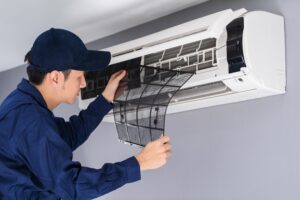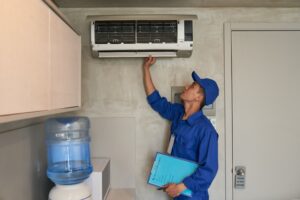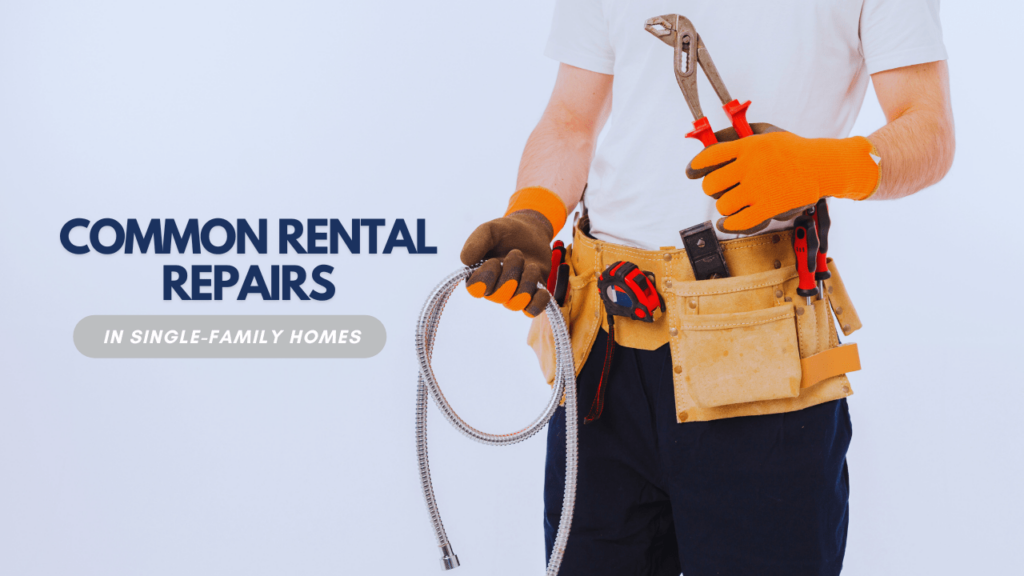
Single-family homes come with a unique set of maintenance issues. If you’re renting out a single-family home in Roanoke, you’ll need to prepare for the maintenance costs and issues that are likely to pop up.
How much time and money you spend will depend on a few critical factors:
- The age of your property.
- The general condition of your property.
- The tenants who live in your property.
- The speed with which you respond to maintenance issues and repair requests.
- The vendors and contractors you use to make repairs.
When you rent out units in a multi-family building, there’s an economy of scale to your repairs. You’re spending less per unit to maintain the plumbing, the HVAC, and the landscaping.
Single-family homes often have larger repair bills. That’s okay, because you’re likely earning higher rents and enjoying better appreciation on the asset.
Let’s take a look at common rental repairs in Roanoke single-family homes. Some of these will likely be obvious to you, and others may surprise you.
Maintenance Is Your Responsibility
We have written blogs before on what types of maintenance issues are your responsibility, as a landlord, and what you can leave to a tenant.
When we’re talking about single-family homes, you can delegate landscaping to a tenant. You can require them to change the air filters. But, those major repairs that your house needs will be your responsibility.
Stay on top of these maintenance issues because investing in preventative maintenance and partnering with tenants and vendors to protect the property and its value will result in a more profitable investment experience. It will cut down on those emergency repairs and ensure your property does not deteriorate faster than it should.
PLUMBING REPAIRS AND THE THREAT OF WATER
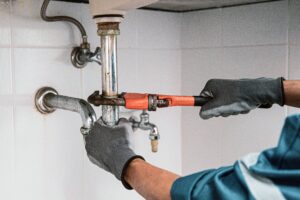 Your property’s plumbing needs to be efficient, safe, and in good shape. Water leaks are common, and it’s always frustrating to find out that a slow drip has turned into a plumbing nightmare.
Your property’s plumbing needs to be efficient, safe, and in good shape. Water leaks are common, and it’s always frustrating to find out that a slow drip has turned into a plumbing nightmare.
Plumbing is not cheap. And there are plenty of places in a single-family home where a plumbing problem can be detected. You probably have multiple bathrooms in your house, which means there are sinks, toilets, and tubs that can leak, flush funny, or get clogged. In the kitchen, you have a sink and some appliances. An ice maker or a dishwasher can begin leaving puddles on the floor.
The causes can be:
- Roof damage that allows water to intrude
- Failed weather stripping
- Poorly fitted or deteriorating pipes
- Broken appliances
- Faucets left running
- Tubs that don’t drain
There will sometimes be unexpected issues and emergency maintenance calls to owners. You can cut down on the likelihood that these plumbing issues will occur by conducting routine inspections and training your tenants to contact you as soon as water problems are noted.
When you’re at the property, look for signs of water damage.
Water sensors can be helpful so you don’t let a leak or a drip carry on for weeks and months without any attention.
Most insurance policies will cover a sudden and unexpected water problem, but a slow leak over a long period of time might be a rejected claim. Make sure you’re keeping up with this maintenance item.
What to do when a leak occurs
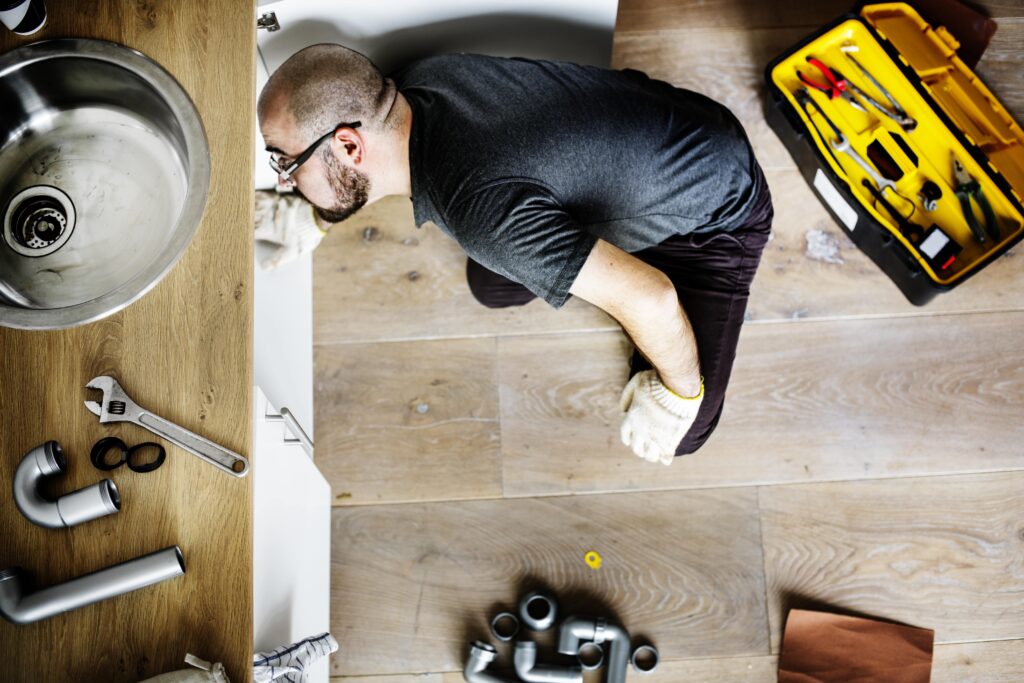
| Step 1 | Identify the cause of the leak |
| Step 2 | Turn off the water source (make sure tenants know where this is so they can do it if necessary) |
| Step 3 | Call a plumber |
Water Heater Repairs
We will talk about appliances a bit later in this blog, but while we’re on the subject of water, let’s give some special attention to your rental property’s water heater. If that water heater is more than 10 years old, rusted, or not working, you’ll hear from your tenants. Either it will stop working and everyone in the house will be stuck with a cold shower, or the tank will begin leaking and need to be replaced immediately.
Replacing the water heater will cost you a bit of money. If you catch the problem early, however, you can take preventative measures. Perhaps the pilot light is out or a heating element needs replacing. Maybe the heater just needs to be flushed. Have it inspected before you go out and buy a new one.
This is where preventative maintenance can have such a huge impact in how you take care of your single-family rental home. You can hire a professional to perform annual maintenance on your water heater. Draining it and eliminating the buildup of sediment can keep it working longer and more efficiently.
Toilet Repairs
Toilets are fussy, and most single-family homes have at least two bathrooms, so you’re likely dealing with at least a couple of toilets. While toilet repairs are likely a source of frustration for you, take these repair requests seriously.
It may be a plumbing issue that you’re responding to when maintenance is needed, but it could also be a situation where something gets flushed that shouldn’t be flushed. Children will drop toys down there, people will attempt to flush things that are too thick, and you’ll find yourself spending a lot of money on a clogged toilet thanks to baby wipes, paper towels, and napkins.
Remind your tenants how to care for things like toilets and sinks. Educate them on the dangers of trying to flush what shouldn’t be flushed.
HVAC SYSTEMS IN ROANOKE RENTAL HOMES
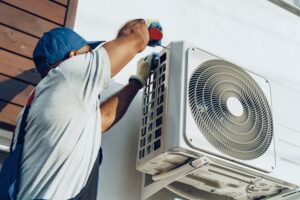 Heating and cooling systems are often expensive repairs in single-family homes. There’s a lot of complex machinery involved, and we ask these systems to work hard all year long, providing heat and air conditioning and keeping the ventilation healthy inside the home.
Heating and cooling systems are often expensive repairs in single-family homes. There’s a lot of complex machinery involved, and we ask these systems to work hard all year long, providing heat and air conditioning and keeping the ventilation healthy inside the home.
HVAC Service Calls Are Common
In Roanoke and throughout Virginia, many of the single-family properties we manage have heat pumps, and they do require some maintenance. The most service calls we get every year are about the heating and the air conditioning.
You can expect calls for help to really spike when the seasons change. As spring turns to summer and fall turns to winter, you can be sure that tenants will be calling about the heat vents blowing cold air or the air conditioning refusing to turn on.
Our first step is to try and diagnose the problem before a technician is even sent out to the property. In many cases, the problem is a dirty air filter that has not been changed in many months. That’s a quick fix.
Air Filters
Checking and Changing Air Filters
You need a system to check and sometimes change the air filters in your HVAC unit. You should be conducting periodic inspections, and when you’re in the house, always look at the filters. Sometimes, they are way up inside the house or in the attic, so it’s hard for tenants to get to them. That means they are likely changed only once a year, when we happen to be conducting our inspections. Filters need to be changed more often than that, and the frequency depends on your house and the amount of dust that gathers. |
Preventative Maintenance and Air Filters
A preventative maintenance schedule with an HVAC company will cut down on this particular repair request that single-family rental home owners often receive from tenants. When you schedule an inspection twice a year, you have a professional looking at your system. You can be sure the Freon is set to the right levels and the filters are changed. They know what else to check for to keep your system running smoothly and efficiently. In addition to the preventative maintenance, you also get a discount from these providers if you need a repair. We believe this is your best option because those heat pump systems or furnaces and air conditioning units can cost $4,000 to $10,000. With that kind of an investment, you want it to last as long as possible. If you can get an extra five or seven years out of your HVAC system by maintaining it properly and having it inspected twice a year, you’re getting a great return on the $200 you spend having it serviced. |
ELECTRICAL ISSUES
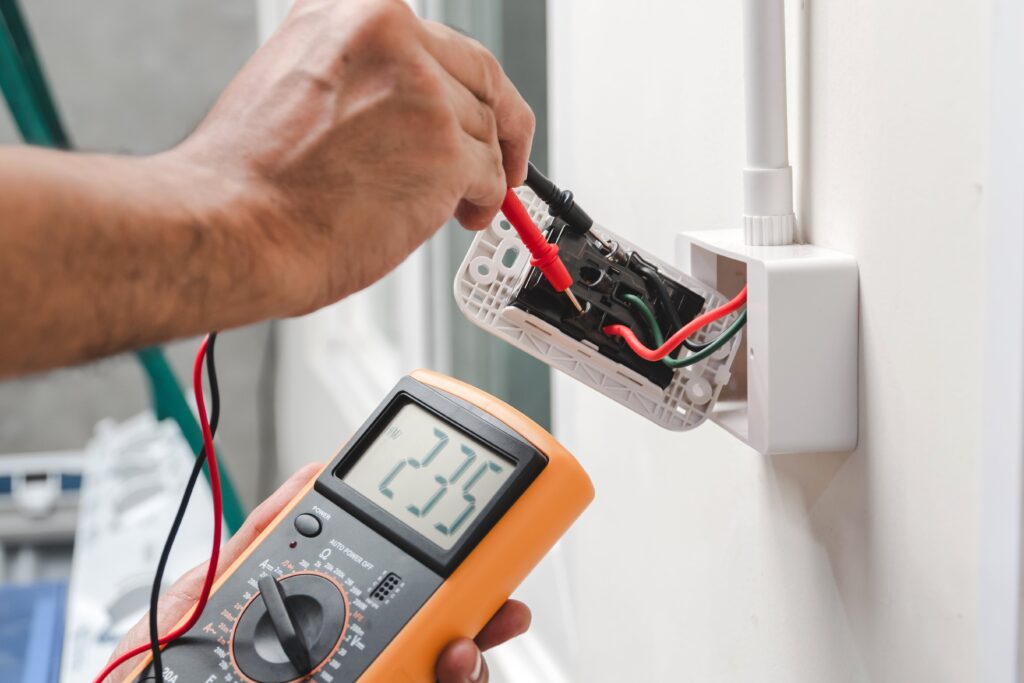
Tenants will expect ongoing access to electricity. When you rent out a single-family home, you need to make sure that your electrical system is sound and safe. According to studies released by the Electrical Safety Foundation, there are 51,000 electrical fires in homes every year. Those fires lead to hundreds of deaths and over a billion dollars in damage.
Electrical dangers are not risks you want to take.
Protect your property and your tenants against the threat of fires by investing in ground fault current interrupter (GFCI) outlets and tamper-resistant (TR) receptacles. You’ll find this limits the risk that sparks can turn to flames. You can also hire an electrician to install arc-fault circuit interrupters (AFCIs) to reduce the risk of a fire resulting from home wiring issues, like sparking and arcing.
Inspect your outlets before a tenant moves into a property. Make sure they are working. Check for signs of smoke or sparks or ash around them.
You can provide some education for tenants too, which will help them avoid potential fires.
| Remind tenants to turn appliances off before they’re unplugged. They should keep things unplugged if they leave town or stop using electronics such as televisions, printers, and computers. | Remind tenants that it’s not a good idea to plug in more than one high-voltage appliance into an outlet at the same time. We have talked to homeowners who had electrical issues because the microwave was running at the same time as the air fryer and countertop roaster. |
| Provide the appropriate light bulb wattage in all your lights and fixtures before tenants move in. Remind them to replace bulbs with the same wattage when necessary. | Talk to tenants about reporting electrical issues right away. You want to know if lights are flickering, appliances are not turning on, or outlets become warm. |
Tenants should know where the fuse box is. They should know to clean out the dryer lint between cycles. Working together, you can prevent electrical dangers in your rental home.
APPLIANCES: REPAIR OR REPLACE THEM WHEN THEY BREAK DOWN?
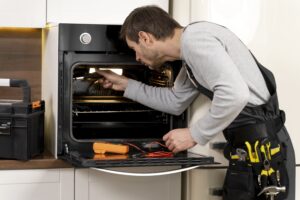 Every single-family home in Roanoke will come with a different set of appliances. You’re likely providing a refrigerator, a stove and an oven, and maybe a dishwasher. Most single-family homes will also come with a washer and dryer. Tenants don’t move into a house and expect to do laundry at the Laundromat.
Every single-family home in Roanoke will come with a different set of appliances. You’re likely providing a refrigerator, a stove and an oven, and maybe a dishwasher. Most single-family homes will also come with a washer and dryer. Tenants don’t move into a house and expect to do laundry at the Laundromat.
This means you’ll have a lot of repair requests that revolve around appliances.
Always be aware of the warranties on these appliances. Minor repairs are likely covered.
The question you’ll really have to answer is whether you want to continue repairing appliances or replace them. A new appliance will look good in your rental home and impress new tenants. Consider upgrading to stainless steel when you do choose to replace instead of repair. If not stainless steel, at least make sure the appliances match each other and operate efficiently.
Common appliance repair needs include:
- Leaking dishwashers
Sometimes, a dishwasher will break down if it’s not being used consistently. There could be plumbing issues or a drainage problem. Have an appliance expert check it out and provide any necessary repairs.
- Garbage disposal issues
Garbage disposals are great for tenants who cook a lot or eat at home and simply want to scrape food crumbs and waste down the drain. A working garbage disposal is a dream, but they’re a nuisance when it comes to repairs.
Tenants will sometimes drop items down the disposal and end up causing a problem. Egg shells, potato skins, coffee grounds, grease, seeds and pits, even too much rice or pasta can all clog a disposal.
The best way to reduce the number of garbage disposal repairs is to educate your tenants on how best to use them. Sometimes, the garbage disposal simply needs to be reset. Try to trouble-shoot with the tenant before you send a repair person over to the home. Remind the tenants that they need to keep the blades sharp in the disposal. Grinding up some ice from time to time can help.
- Microwave ovens
If you provide a microwave, you’re looking at a shelf life of about 10 years. There aren’t a lot of great reasons to repair a microwave. If it’s not working, let it go and buy a new one. This is one of the cheapest appliances in your home.
Remember that you’re responsible for maintaining and replacing any appliances that you provide with your single-family home. If your tenants move in and you have a washer and dryer in the home, you have to take care of those appliances. If you provide the hook-ups but not the actual appliances and the tenants install their own, the maintenance will be the responsibility of the tenants.
PEST CONTROL AND RODENT CONTROL
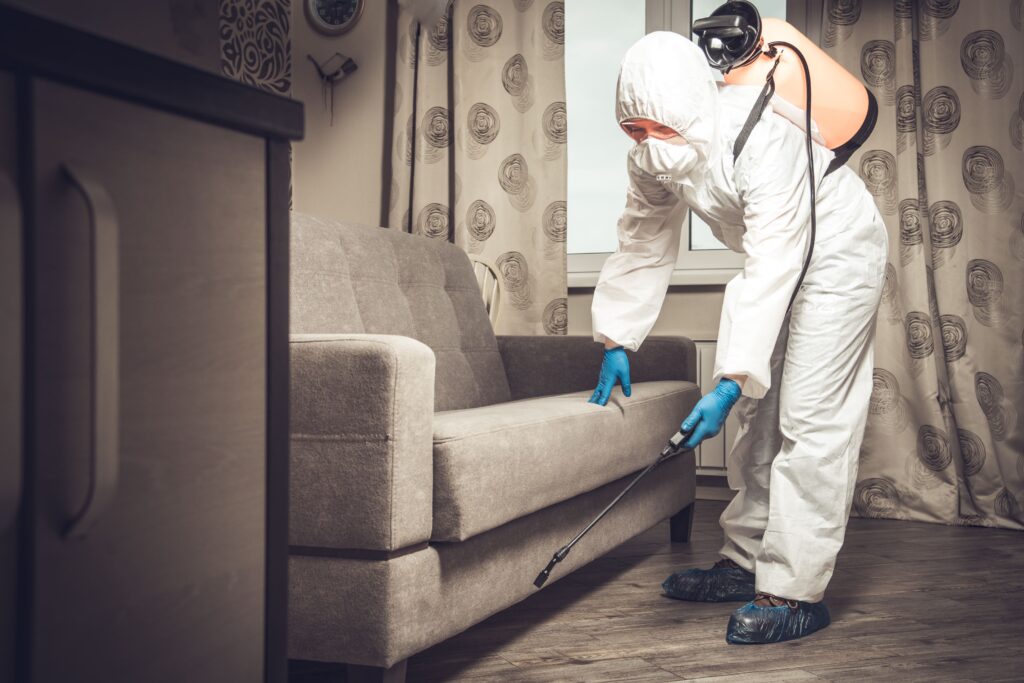
Bugs are gross, and no one wants to live with them.
As you’re maintaining your home, you’ll find that tenants may call with complaints about termites, ants, roaches, rats, mice, and even squirrels. When they get inside your property, they can cause extensive and costly damage.
You want to prevent infestations. Contract with a pest control company for both pest treatment and to avoid pests. You’ll want to keep up with regular pest control services.
Tenants have a part to play in avoiding pests as well. When they call about ants, remind them to avoid leaving out food. Sometimes they’ll forget that bugs are attracted to pet food that may be left on the floor all day. Open soda cans will be attractive to bugs, too. Trash in the corner of the kitchen will attract rodents and insects. If you or your tenant begins noticing pests or signs of pests (such as droppings or damage), it’s important that you handle the issue immediately. The longer an infestation continues, the worse and more expensive it can become.
THOSE BEEPING SMOKE DETECTOR
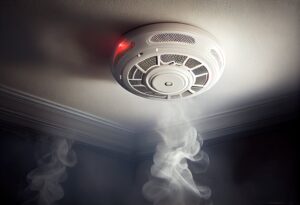 Another common maintenance request from our tenants in single-family homes is the smoke detector.
Another common maintenance request from our tenants in single-family homes is the smoke detector.
They’re legally required in your Roanoke rental home, and tenants are required to keep them in place and not tamper with them.
But if you’ve ever had your smoke detector begin beeping at you because a battery needs to be changed or dust has built up in the system, you know how annoying it is.
Install functioning smoke detectors in your rental properties, paying close attention to bedrooms and hallways.
A smoke detector is only beneficial when it’s fully operational. To ensure your fire detection equipment is properly functioning, the National Fire Protection Association (NFPA) recommends testing batteries monthly and replacing smoke detectors every 10 years.
It’s impossible to anticipate every maintenance issue that your single-family home will need. But, if you’re prepared for these common concerns, you can plan and budget ahead of any potential repair requests.
Invest in good landlord insurance, and if you really want an easy way to deal with these maintenance concerns, we invite you to work with a Roanoke property management company.
Please contact us at Lawson Realty Group whether you’re a new investor or an experienced real estate owner. We manage properties in Southwest Virginia throughout the Roanoke Valley, including Salem, Cave Spring, Hollins, Vinton, Glenvar, and Southwest Roanoke County.

